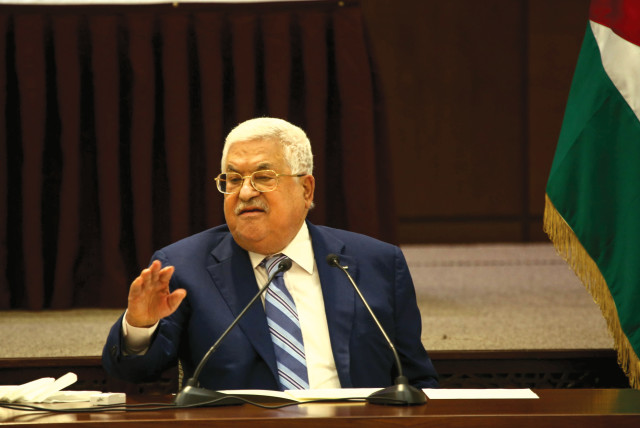The future of Gaza: Netanyahu's strategic gambit unveiled

A covert Israeli plan aims to establish a military government in Gaza and foster regional ties, eyeing a future Palestinian state and peace with Saudi Arabia.
Stage one involves the creation of a comprehensive Israeli military government in Gaza to oversee humanitarian aid and assume responsibility for the civilian population during a "transition period."
Concurrently, stage two will see the formation of an international Arab coalition, including Saudi Arabia, Egypt, Morocco, the United Arab Emirates, Bahrain, and others. This coalition is to be part of a broader regional normalization agreement, backing the establishment of "the new Palestinian Authority."
Officials, neither affiliated with Hamas nor directly associated with Palestinian Authority President Mahmoud Abbas's (Abu Mazen) guard, will inherit Gaza's governance from Israel, concluding the military administration. Israel will maintain the right to conduct security operations in Gaza, mirroring its operations in the West Bank, whenever operational needs to counter terror or terror infrastructures emerge.
The subsequent phase, contingent upon Gaza's stabilization and the success of the new entity ("the new Palestinian Authority"), entails extensive reforms in Judea and Samaria regarding the Palestinian Authority's functionality, educational content, and terror management.
Potential future of a Palestinian state
Should this stage proceed smoothly within a predefined two to four-year timeline, Israel will recognize a delineated Palestinian state within the Palestinian Authority territories and consider transferring additional, non-settlement-requiring lands to that state.
This clandestine plan, devised in Israel by what's herein referred to as "a group of businessmen," was also shared with official American figures. Among these businessmen, several are closely connected to Prime Minister Netanyahu, with one being especially close.
Representing Netanyahu's trial balloon, this initiative aligns with the American-led comprehensive Middle East settlement effort, spanning Gaza, the Palestinian Authority, and Saudi Arabia. Although Netanyahu is not directly involved in these discussions (delegating to his trusted adviser Ron Dermer), he actively forwards and deliberates over these ideas, always able to deny direct involvement by attributing it to "businessmen."
It's crucial to note that this plan is part of Israel's broader strategy for the "day after," alongside several other initiatives. Coordination is underway by Maj.-Gen. Rassan Alian, the Coordinator of Government Activities in the Territories, with the IDF and the Shin Bet (Israel Security Agency) each developing their respective plans.
This approach typifies Netanyahu's method: deploying multiple envoys for parallel missions while he himself remains non-committal. The businessmen's scheme is the prime plan Netanyahu considers, yet from a "safe distance" typical of his style.
For instance, early in the last decade, Netanyahu secretly engaged in protracted negotiations with Abu Mazen through the "London Channel," mediated by his then-confidant, lawyer Yitzhak Molcho, and Abu Mazen's personal representative, Hussein Agha. Netanyahu confirmed to President Obama that he was conducting this track with his consent yet kept a "safe distance."
This approach was later integrated into the negotiations led by US Secretary of State John Kerry with Israel and the Palestinian Authority, which culminated in a detailed American proposal for a Palestinian state—a proposal Israel agreed to, while Abu Mazen has yet to respond.
The question remains: Can Netanyahu pivot towards a historic action that would conclude the Gaza conflict and pave the way for a future Palestinian state alongside a landmark peace agreement with Saudi Arabia? The odds seem against it, given Netanyahu's history of abandoning similar initiatives before fruition.
Nevertheless, it's essential to remember that Netanyahu is aware his time is limited. His current legacy is marred by the October 7 massacre, a calamity unprecedented since the state's founding. A move towards an agreement with Saudi Arabia and progress on the Palestinian front could alter the narrative he leaves behind, albeit in challenging times. The decision rests with him.
Jerusalem Post Store
`; document.getElementById("linkPremium").innerHTML = cont; var divWithLink = document.getElementById("premium-link"); if (divWithLink !== null && divWithLink !== 'undefined') { divWithLink.style.border = "solid 1px #cb0f3e"; divWithLink.style.textAlign = "center"; divWithLink.style.marginBottom = "15px"; divWithLink.style.marginTop = "15px"; divWithLink.style.width = "100%"; divWithLink.style.backgroundColor = "#122952"; divWithLink.style.color = "#ffffff"; divWithLink.style.lineHeight = "1.5"; } } (function (v, i) { });

